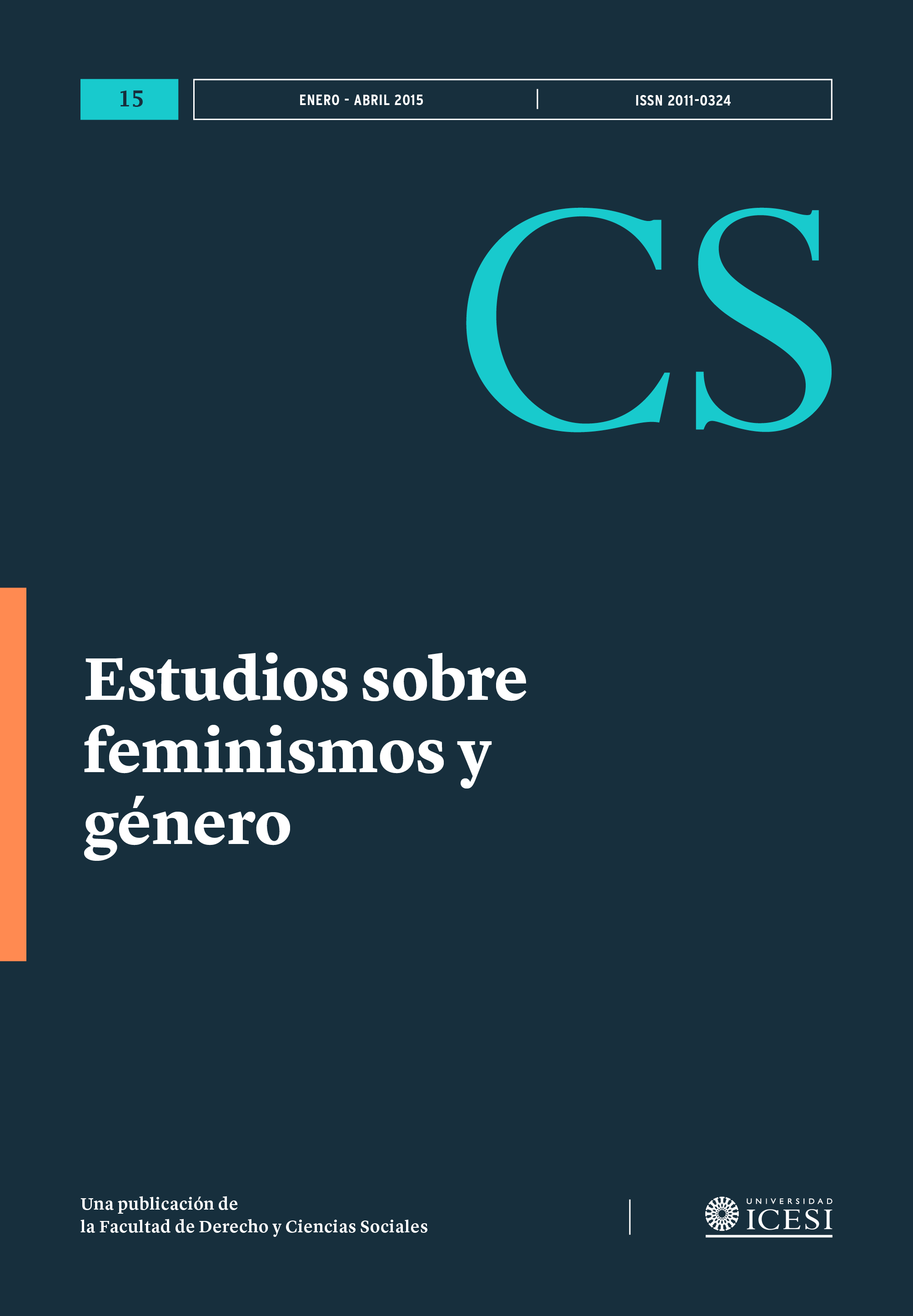El impacto de la apertura económica en la equidad de género en Colombia
DOI:
https://doi.org/10.18046/recs.i15.1963Palabras clave:
Apertura económica, empleo, indicadores de equidad de género, mujeresResumen
Esta investigación tiene como objetivo analizar el impacto de la apertura económica en el comportamiento de los indicadores de género en Colombia. Dichos indicadores incluyen múltiples dimensiones, tales como: el acceso al mercado laboral, el nivel de escolaridad, el acceso a los servicios de salud y la participación política. Para cumplir con los objetivos de la investigación se utilizaron las bases de datos de las Naciones Unidas y estadísticas relevantes de algunas entidades del Gobierno Nacional. Los resultados indican que la apertura a nuevos mercados trajo consigo efectos positivos para las mujeres, dado que incrementó sus oportunidades de participar en el mercado laboral y mejorar sus niveles de educación. No obstante, siguen existiendo brechas en relación con el nivel de ingreso y la calidad del empleo al que acceden las mujeres. Un alto porcentaje de ellas reciben menores salarios que los hombres y trabajan en sectores económicos menos productivos, a pesar de que su nivel educativo ha mejorado considerablemente. Se encontró también que el nivel de educación y la autonomía económica de la mujer son factores que influyen en sus condiciones de salud, victimización y nivel de empoderamiento. Las mujeres menos educadas tienen mayor probabilidad de ser víctimas de violencia intrafamiliar y de tener mayores tasas de fertilidad y mortalidad. Así mismo se encontró que las mujeres siguen teniendo baja participación en cargos políticos o posiciones que impliquen la toma de decisiones relevantes. La mayoría de los casos de segregación por género se asocian con los roles, habilidades y características culturales que la sociedad ha atribuido al género femenino. A pesar de que en Colombia se han creado diversas políticas para disminuir la inequidad de género, éstas se han orientado en su mayoría a generar acciones de corto plazo. Se requiere entonces de la adecuada coordinación de las instituciones públicas y privadas, con el fin de realizar cambios estructurales e implementar acciones efectivas que permitan reducir mucho más este sesgo.
Descargas
Referencias
CIFUENTES, L. & RUEDA, M. (2013). II Informe de seguimiento a la implementación de la Ley 1257 de 2008. Bogotá, Colombia: Ediciones Antropos.
DE LA CRUZ, C. (2007). Género, derechos y desarrollo humano. Proyecto America Latina genera PNUD. San Salvador, El Salvador.
FORERO, L. (2012). Indicadores de género en Colombia. Observatorio asuntos de género. Boletín No. 15, 7–15.
GÁLVEZ, T. (2001). Aspectos económicos de la equidad de género. Santiago de Chile, Chile: Naciones Unidas– CEPAL.
GALVIS, L. (2010). Diferencias salariales por género y región en Colombia: una aproximación con regresión por cuantiles. Banco de la República. Cartagena, Colombia.
GARCIA, O. & URDINOLA, P. (2000). Una Mirada al mercado laboral colombiano. Departamento Nacional de Planeación. Bogotá, Colombia.
GAYE, A. & KLUGMAN J. (2010). Measuring key disparities in human development: The Gender Inequality Index. United Nations.
GUARNIZO, C. & HERREÑO C. (2008). Equidad de género en el acceso a los servicios de salud en Colombia. Revista de salud pública, (10), 44–57.
KALMANOVITZ, S. (2000). Oportunidades y riesgos de la Globalización en Colombia. Banco de la Republica. Bogotá, Colombia.
NAJAR, A. (2006). ''Apertura económica en Colombia y el Sector Externo 1990–2004''.Tesis Maestría. Universidad Nacional de Colombia.
OCAMPO, J. Un futuro económico para Colombia.
SEN, A. (2000). La agencia de las mujeres y el cambio social. Desarrollo y Libertad (pp. 233–249). Bogotá, Colombia: Planeta Colombiana S.A.
VASQUEZ, M. & OLARTE T. (2010). Informe de Gestión 2002–2010. Observatorio de asuntos de género. Boletín Edición Especial, 6–32.
Statistical references
ALTA CONSEJERÍA PRESIDENCIAL PARA LA EQUIDAD DE LA MUJER (2012). Lineamientos de la política pública Nacional de Equidad de Género para las Mujeres. Bogotá, Colombia.
BANCO DE LA REPÚBLICA. Banco Central de Colombia. http://www.banrep.gov.co/pibbase–1975
CONPES 161. (2013). Women's Gender Equality
DANE. www.dane.gov.co/files/investigaciones/boletines/educacion/bol_EDUC_2012.pdf
GENDER STATISTICS UNPD: http://genderstats.org/Browse–by–Countries/Country– Dashboard?ctry=170
NATIONAL OBSERVATORY OF VIOLENCE AGAINST WOMEN (2011). Ministry of Health
PNUD (2000). Informe de Desarrollo Humano para Colombia.
THE WORLD ECONOMIC FORUM (2013). The Global Gender Report.
UNITED NATIONS. Human Development Report (2013).
UNITED NATIONS (2013). The Millennium Development Goals Report.
Descargas
Publicado
Número
Sección
Licencia
Derechos de autor 2015 Diana Marcela Méndez

Esta obra está bajo una licencia internacional Creative Commons Atribución-NoComercial 4.0.
© Derechos reservados de autor
El material de esta publicación puede ser reproducido sin autorización, siempre y cuando se cite el título, el autor y la fuente institucional.
El contenido publicado en Revista CS se distribuye bajo la licencia Creative Commons BY-NC 4.0 Atribución/Reconocimiento-NoComercial 4.0 Internacional.
Usted es libre de:
Compartir — copiar y redistribuir el material en cualquier medio o formato.
Adaptar — remezclar, transformar y construir a partir del material.
Bajo los siguientes términos:
Atribución — Usted debe dar crédito de manera adecuada, brindar un enlace a la licencia, e indicar si se han realizado cambios. Puede hacerlo en cualquier forma razonable, pero no de forma tal que sugiera que usted o su uso tienen el apoyo de la licenciante.
NoComercial — Usted no puede hacer uso del material con propósitos comerciales.












